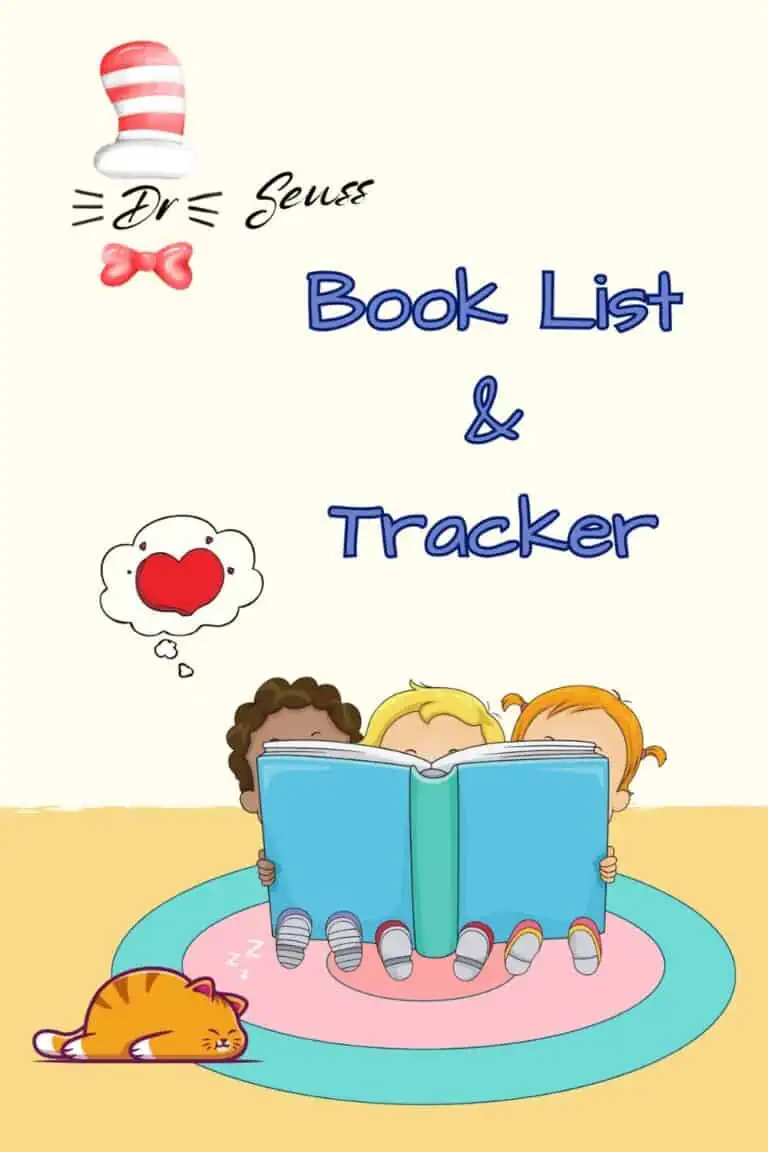The Important Benefits of Reading to Your Child
Published:
July 21, 2022

Contributor:
Sonlight
Disclosure: This post may contain affiliate links, meaning if you decide to make a purchase via my links, I may earn a commission at no additional cost to you. See my disclosure for more info.
Reading to your child has so many benefits! No matter how busy your day or how many subjects you hope to fit into your homeschool, be sure to make time for reading to your child. Here’s why it’s important and all the ways it will affect their development, especially in the early years.
Benefits of Reading to Your Child
The benefits of reading to your child cannot be overstated. Yes, it’s such a simple activity. But even when you’re getting tired of reading the same stories over and over, your child’s cognitive development, language and listening skills are all being grown and improved.
Why is reading so important for a child?
Reading is important for a child academically, physiologically, developmentally, and relationally. In fact, the benefits are so numerous that they’re almost too hard to completely list and explain. Young children who are not independent readers yet need to learn the English language through hearing it. And reading quality literature to them is a great way for them to build phonemic awareness, learn new vocabulary, and hear excellent modeling of reading.
Not only this, but brain development is greatly impacted when parents read to children. Add into this a great bonding experience over a new book, and you have just a few wonderful reasons why reading is important for a child.
Why is reading important in early years?
Reading is important in the early years because your child’s brain and phonemic awareness are still developing. Even if you end up reading your child’s favorite picture books to them over and over, there are still many important benefits.
Consider these benefits to reading in the early years:
- sparks their imagination
- encourages curiosity
- kindles creativity
- builds literacy skills
- improves attention span
- grows vocabulary
- reduces stress
- grows listening skills
- improves memory
- enhances knowledge
Books connect us more than most other shared experiences. The parent-child relationship is strengthened by this quality time around a good book. That’s one reason why your children will never outgrow read-alouds. There becomes a positive association of books and relationships if your child grow up with read-alouds. This special time is worth the investment in time and energy.
How does reading affect a child’s development?
Reading affects a child’s development in positive ways. We’ll detail below how it affects various aspects of literacy, phonemic awareness and cognitive skills. Studies show that children whose parents read to them have much better academic success than children who are not read to by their parents.
So even if your toddler or preschooler just wants the same chunky board books read over and over, then indulge them! Your child’s brain will thank you. In fact, it’s a good idea to include a favorite story in your story time routine. This brings familiarity and reduces stress for children.
One of the best ways to not only improve your child’s future academic success but also their emotional maturity is to include regular read alouds in your family routine.
In fact, reading is so important to a child’s development that you should find ways to fit it into your daily schedule and routine. A few ways to do this include using audiobooks if you can’t always read them yourself, task your older children to read to their younger siblings, and also to be intentional with fitting it in. That could mean a morning reading time, or just after lunch, or even before bed. But go ahead and figure out when it makes the most sense in your daily routine and start to make it happen on a regular basis.
Important Benefits of Reading to Your Child
Cognitive Development
Studies show that multi sensory integration is greatly improved in a child’s brain by listening to read-alouds. In fact, brain imaging has shown that a reading to your children does impact a child’s development by increasing brain activity in the visualization center of the human brain.
Even for the child who hates to read, you can use graphic novels to encourage them. Or when you’re reading aloud, stop at a cliff-hanger and build the anticipation to the next part of the story! Start to engage your kids in this way and even your reluctant reader can learn to have a love of books.
Improved Language Skills
Language development is grown in so many ways when you consider the benefits of reading to your child. Even before your children understand how to read on their own, the growth in language skills is monumental when you read to them. Consider these areas where their language skills are improved.
Phonemic awareness
Even before your child has learned phonics and the sounds that individual letters make, they need to grow in phonemic awareness. This is learning how the language sounds. Nursery rhymes are some of the best things you can read aloud to your young children to grow this phonemic awareness. They’ll start to pick up on rhyming sounds and grow early literacy skills just by the simple act of reading to your child at a young age.
Great children’s books provide wonderful text to grow this phonemic awareness, or being able to identify individual sounds in the language.
Phonics
When your children are old enough to follow the words on the page, have them look at the book pages with you to start to understand how individual letters make sounds and these sounds are put together to make words. There will be numerous benefits to this early reading introduction to phonics just through reading to your child.
Because story is so powerful, one of the benefits of reading to your child is that they will likely grow a love of reading and a love of learning. This will in turn grow their academic skills, including early skills in phonics. But the benefits of reading to your child don’t stop when they’re still young. In fact, your children will never stop learning even as adults once they know that they can learn whatever they want once they’re readers.
Vocabulary
Children’s books contain a wide range of vocabulary, so your children will learn new words and learn this new vocabulary in context! This is a great benefit to reading quality children’s literature to your kids. Increased vocabulary will lead to future academic success for your children.
One of the benefits of reading to your child is that you can read literature that is at a higher level than they could ever read on their own. This is true when children still do not know how to read independently, but it’s still true as children grow. By reading books that include harder vocabulary than a “grade-level” reader, you are able to grow your child’s vocabulary by leaps and bounds. Plus, they’re hearing these new words in context, which means they are more likely to remember them and their meaning.
Reading comprehension
Read alouds provide a great opportunity to grow your child’s reading comprehension because you can pause and discuss what you’re reading along the way. We usually don’t have discussions while we’re reading independently. It’s an effective way to ask questions of the text and engage your children in the story in a meaningful way.
An easy way to teach comprehension is to ask your child for three things they remember about the passage or the story. If they know you will be asking this question routinely, it will encourage them to pay attention to the read aloud.
Another of the benefits of reading to your child in the area of reading comprehension is growing their ability to focus. When you can help your child learn to stay on task, they’re more readily able to pay attention and comprehend what you’re reading. And don’t be discouraged if your children need something to keep their hands busy while you read. Go ahead and let them learn how their hands can be busy while their minds are engaged in the read-aloud.
Fluency (oral reading)
Reading independently and reading fluently are two different things. There is a lot of cognitive work that goes into reading fluency. In order to help your children grow in this area, rereading familiar books with them is a must. This allows sight words to make their way into your child’s memory. It also models for them how to read with emotion and connect the text on the page smoothly.
One of the great benefits of reading to your child is that you can model fluent reading to them while they silently read in their heads. This will help grow their independent reading ability far beyond just decoding words on a page and into the oral reading fluency that characterizes a good reader.
Even if your child is an independent reader, they will still grow in fluency by listening to a good reader (that’s you!) read fluently. You’ll be modeling how to incorporate pauses and emotion while reading. This in turn will help your child’s reading comprehension. So even if you think your child has age-appropriate reading skills, keep reading to them so they get this benefit of fluency.
Increased Attention Span
Even your very active children can work to increase their attention span through ever-increasing reading time with mom. Don’t feel guilty about giving them something to keep their hands busy while you read-aloud. Start short and gradually lengthen your read-alouds. This will lead to longer attention spans, better memory retention, and school readiness.
Improve Listening Skills
Work to improve the listening skills of your children. Give the expectation that your children will pay attention when you’re reading to them. Make it part of your routine to stop and ask for a brief comment or narration about a part of the story you just read. Start with short read-alouds if your children don’t have long attention spans, and then gradually grow the time you spend reading to your child as their listening skills also grow. When you expect them to listen, you’ll also be modeling the importance of reading.
Spark Your Child’s Imagination
Great children’s books can certainly spark your child’s imagination. One of the fun ideas to extend the learning from a read-aloud is to encourage your children to act out the story.
One of the other benefits of reading to your child is that that will have a new understanding of the world and appreciate different cultures. In fact, they can even vicariously enjoy new experiences through the pages of a book. The world becomes their classroom when you spark your child’s imagination through reading.
Reading books to your child allows you to start conversations that you might otherwise not have. It’s a wonderful way to bond over a favorite book forge strong family ties.
In Conclusion
There really is no good reason not to regularly read to your child! No matter their age, they will benefit in numerous ways by the connection and language-building benefits that happen. If you don’t already read to your child, go ahead and find a way to add it into your normal daily routine as soon as you can. You children can learn to love reading, and that will bring about so many benefits!











